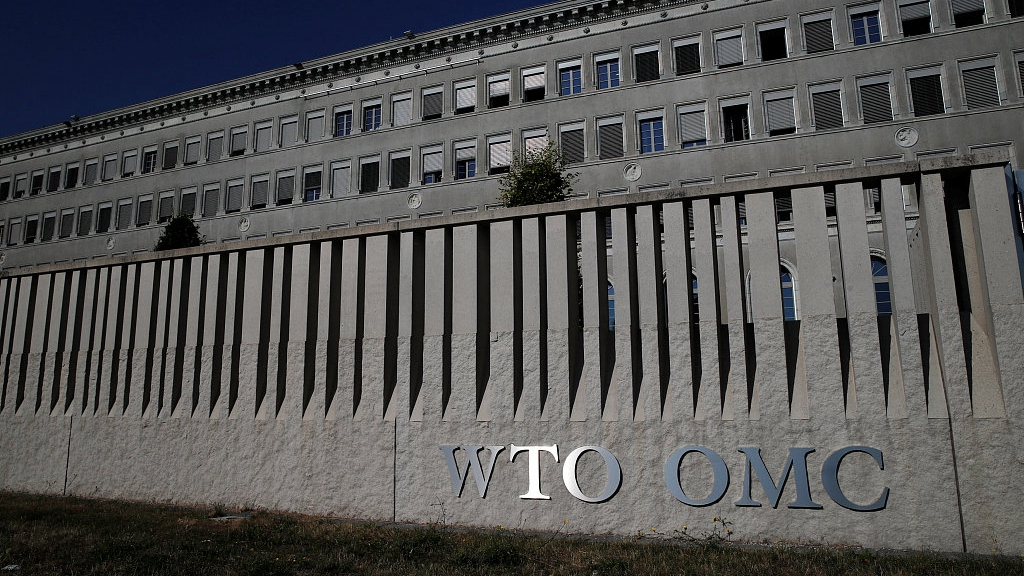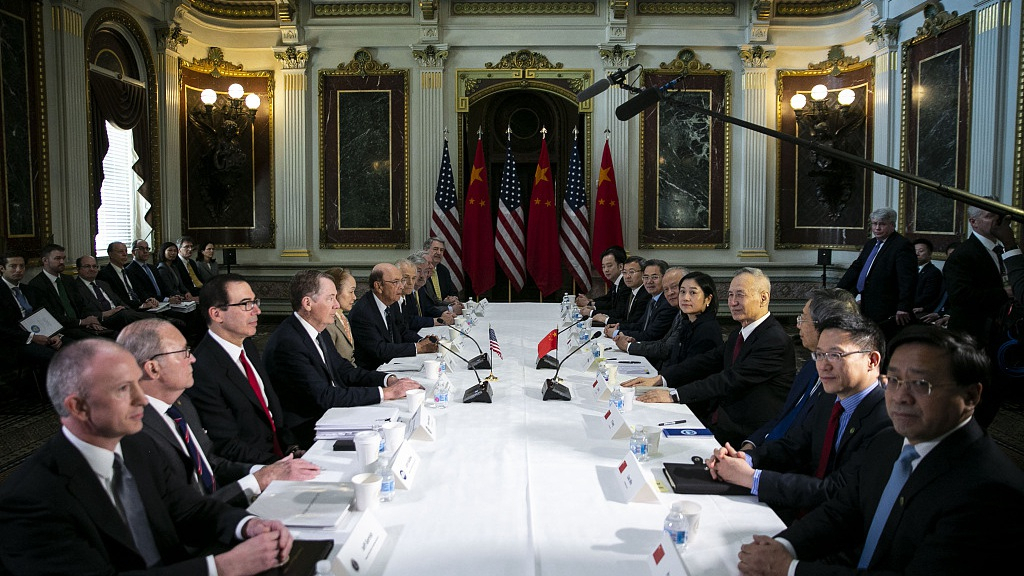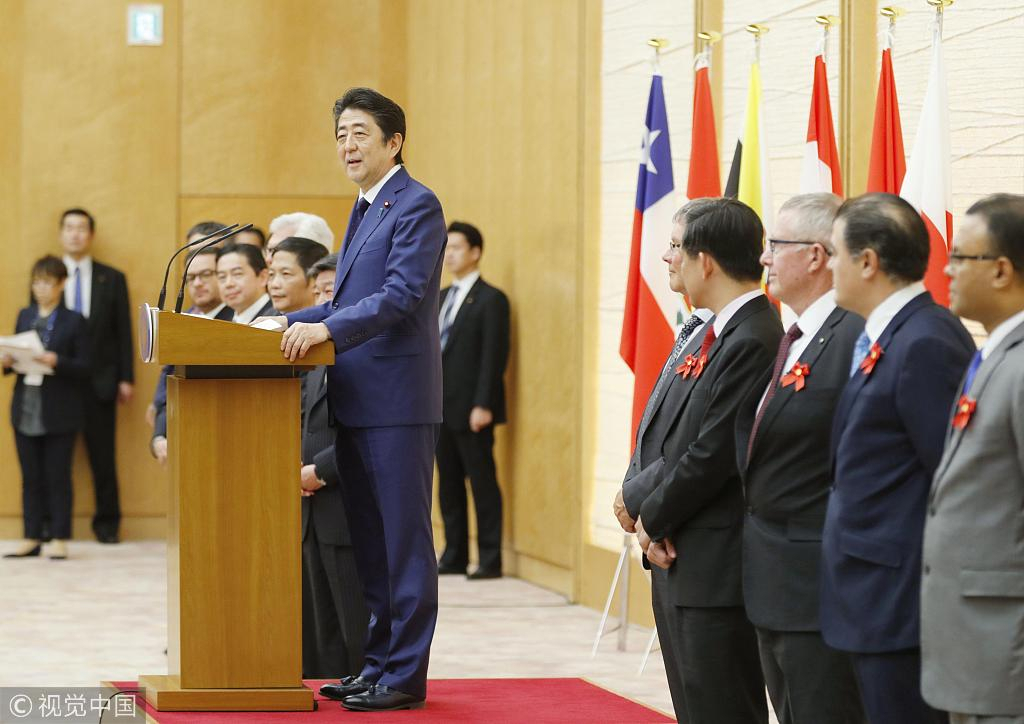

Editor's note: Aravind Yelery, PhD, is a senior research fellow at Peking University's HSBC Business School. The article reflects the author's opinion, and not necessarily the views of CGTN.
Globalization has brought benefits to small nation-states and brought them into the mainstream of global affairs. This was inevitable because the geoeconomics brought normative changes to the global order. Inverted dependency between the periphery and core triggered a new debate on coexistence through narrow definitions of sovereignty, law and globalization. In the past century, globalization emerged as the fundamental challenge to the Westphalian system.
In recent years, global trade has undergone a structural as well as institutional overhaul. The rise of Asian economies in general have shifted the focus of global manufacturing regions, causing shift in global economic centers. Not only has the definition of trade and commerce changed, but also the principles guiding the global trade were debated by other parts of the world.
To name a few and to take the case studies later, let us look at trade agreements, including WTO, the now frozen Trans-Pacific Partnership (TPP) and the trade preference programs launched to generate opportunities of sustainable development in other parts of the world.

Chinese and U.S. trade representatives meet for trade talks in the Eisenhower Executive Office Building in Washington, D.C., U.S., February 21, 2019. /VCG Photo
Against the backdrop of race over tariff and protections, one can notice the growing pressure on WTO to ensure the equal and fair national treatment, reciprocity, and mutual recognition of other member economies. One would wonder if anybody still remembers the achievement of the decade-long Uruguay round of negotiations which were completed in 1994.
The world is going back to square one, and forgetting the Uruguay round agreement to bring tariffs down and reduce many other barriers to trade and investment along with rules to settle trade disputes.
The trade war tendency is just a tip of the iceberg. The decline of such institutions would ensure the end of liberalized international trade and the hiatus of global interdependencies leading to cascading effects on global affairs. The near-dead TPP also follows the same story.
Once celebrated and highly regarded mega free trade agreement even reached a stage when the Obama administration was working towards the approval of this mega trade agreement but the worries concerning the threats to domestic industry weighed against the prospects. So the insecurities over economic prospects were the initial signs of the trade war which were eliminated and resurfaced at multiple times in recent history.
Once hailed, the Generalized System of Preferences (GSP) also had to undergo changes. Although the GSP expired in 2017, it principally helped the U.S. conserve its interests among smaller economies. GSP did not cause a major worry for the U.S. economy in terms of share in its GDP but it had to go as the new administration sought ways to clear it. Mostly, across the board it is assumed that GSP is liberal and benefits the poor and developing country but this is not the fact.
First of all, the scheme offers zero tariffs to only some of the 4,800 products listed. The rest of the products face various caps and limits. In reality, GSP is not a great scheme designed benevolently to benefit the poor and underprivileged economies.
The standards and requirements usually are so cumbersome for the poor and developing countries to fulfill, as per the importing countries, that the program limits the optimal scope of the benefits. The other issues which include the volatility from domestic politics which are a cause of worry for GSP beneficiary countries.

Japanese Prime Minister Shinzo Abe addresses a meeting of the 11 countries taking part in the Trans-Pacific Partnership free trade accord in Tokyo, January 19, 2019. /VCG Photo.
The denial of multilateral pronged trade relations underlines the fact that these tendencies have potential to disrupt supply and value chains around the world. The policies can destroy any benefits in the immediate future and would be catastrophic as in the long run, as it would disrupt the finely woven network of supply and value strings which runs through countries and continents.
Speaking about the local impact of trade escalations on the value chain is important. A prospering network of global businesses are the gateways to entrepreneurship, which generates opportunities in emerging ecosystems which further leads to entrepreneurship and investments.
Most importantly, the dismissal of trade reciprocity also harms the interests of the host economy. In the long run the measures, which underline the rising level of protectionism, would lead to skepticism of prior deals. Moreover, this would also have the reverse effect because the exports would also meet the same fate in the global markets.
Beyond trade, the trade conflicts would escalate the matters related to global institutions. Multipolarity and multilateralism in the age of global interdependence has given impetus to the need of multilateral global governance. The developing world which relies on consistent policies related to trade and commerce demand the institutions and norms of global governance to be recalibrated.
(If you want to contribute and have specific expertise, please contact us at opinions@cgtn.com.)

Copyright © 2018 CGTN. Beijing ICP prepared NO.16065310-3
Copyright © 2018 CGTN. Beijing ICP prepared NO.16065310-3